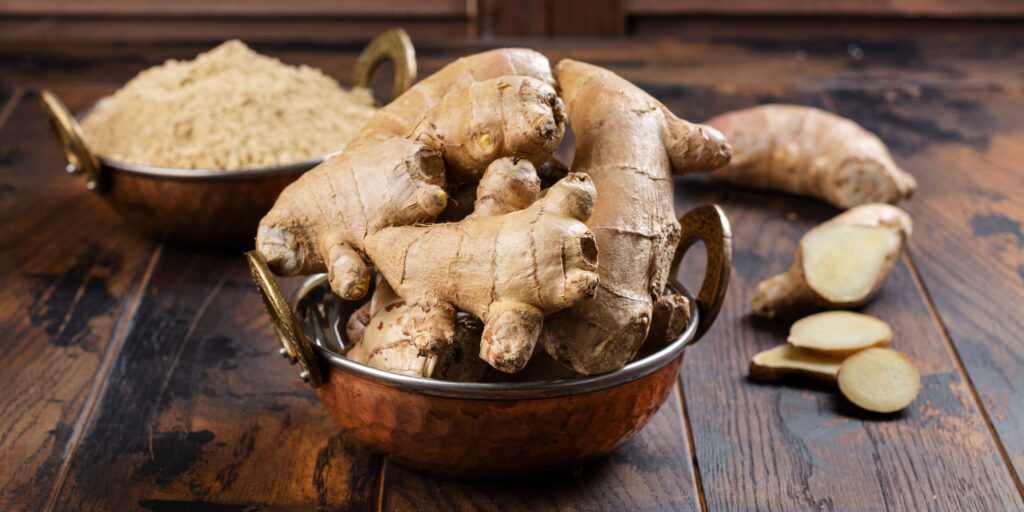My mother always used to make us ginger tea when we felt under the weather. She swore by its ability to soothe an upset stomach or relieve cold symptoms. As I got older, I started hearing more claims about ginger’s liver-cleansing properties. Curiosity got the best of me, so I decided to look into the question: Does ginger really clean the liver? Here’s what I found in my research.
Ginger’s Role in Liver Detoxification
Our livers work tirelessly every day to filter toxins from our blood and break them down for excretion. Anything we can do to support the liver in its important function will have widespread health benefits. Some herbal medicines, like milk thistle, are renowned liver tonics. Could ginger do something similar?
It turns out ginger contains compounds called gingerols that are thought to stimulate the liver’s detoxifying enzymes. These enzymes help the liver break down and eliminate harmful substances from the body. Early scientific studies have found ginger may induce certain cytochrome P450 enzymes involved in Phase I detoxification. This initial breakdown of toxins is a crucial step to remove them from the bloodstream.
Ginger is also believed to support Phase II detoxification by stimulating the liver’s production of glutathione. Glutathione is an antioxidant necessary for shutting toxins out of the liver’s cells. A deficiency in glutathione allows toxins to accumulate, which can potentially damage liver cells over time. Anything that supports glutathione homeostasis likely protects liver health in the long run.
Some animal research also shows ginger extracts protect the liver against toxicity. Rats that consumed ginger before being exposed to liver toxins had reduced damage compared to the control group. This provides early evidence ginger could help shield and repair the liver during detoxification processes. Of course, more studies are still needed—but the current data points toward ginger aiding the liver’s natural cleansing functions.
How Common is Ginger Consumption

Many cultures have long incorporated fresh ginger root into their diets. Ginger is abundant in Asian cuisines like Chinese, Japanese, Thai, and Indian cooking. It adds warmth and flavor to soups, stir-fries, curries and more. Some traditional medicinal systems, including Ayurveda and traditional Chinese medicine, also employed ginger as a natural remedy for various ailments for centuries.
Here in the West, ginger is enjoying renewed popularity both in cooking and as a supplement. It can be found in many forms—fresh roots, ground powder, dried slices, tea, syrups, and capsules. Ginger biscuits and ginger beers are also beloved treats. Even mainstream supermarkets now carry various ginger products throughout the year. As awareness grows of ginger’s possible health benefits, its consumption will likely continue increasing globally.
When it comes to supporting liver function specifically, experts recommend consuming between 1-4 grams of ginger per day. You can achieve this amount easily through daily snacks and drinks with fresh or powdered ginger added. For example, slicing a 1-inch piece of fresh ginger root into green tea provides about a gram. The important thing is to find ways to regularly incorporate ginger into your lifestyle. Its liver-friendly compounds may be working subtly behind the scenes.
Other Nutrients Ginger Offers the Liver
Beyond its suspected role in detoxification, ginger offers further nutrition that likely protects the liver. One of ginger’s star compounds is gingerol, which has potent anti-inflammatory and antioxidant effects. Chronic inflammation wreaks havoc on the liver and increases the risk of diseases like fatty liver disease. Ginger’s gingerols help quell inflammation at its source.
Ginger is also a rich source of vitamin C, vitamin B6, manganese, and potassium—all important micronutrients for liver health. Vitamin C is a water-soluble antioxidant that recycles other antioxidants like vitamin E. Vitamin B6 supports over 100 enzyme reactions in the body, including amino acid synthesis essential for detox efforts. Manganese plays a key role in xenobiotic metabolism—the breakdown of potentially toxic foreign substances by the liver. Potassium aids fluid balance and offsets sodium’s negative effects.
Overall, ginger provides a nourishing package of protective nutrients, compounds, and antioxidants for the liver to draw from daily. Incorporating its sweet and spicy flavor means regularly bringing these benefits to the liver’s doorstep.
Conclusion
While more extensive research is still underway, initial findings on ginger’s actions within the liver are promising. Its traditionally recognized anti-nausea and digestion-soothing qualities alone make it a worthwhile addition to any diet or supplement regimen. But ginger’s potential role in liver detoxification gives it added significance. By supporting Phase I/II processing and cellular antioxidants like glutathione, ginger may indeed lend the liver a helping hand in its daily cleansing duties. It provides valuable nutrition and immune support as well. All in all, ginger appears to be a natural food well worth including both for its benefits to the liver specifically and whole-body wellness in general.




